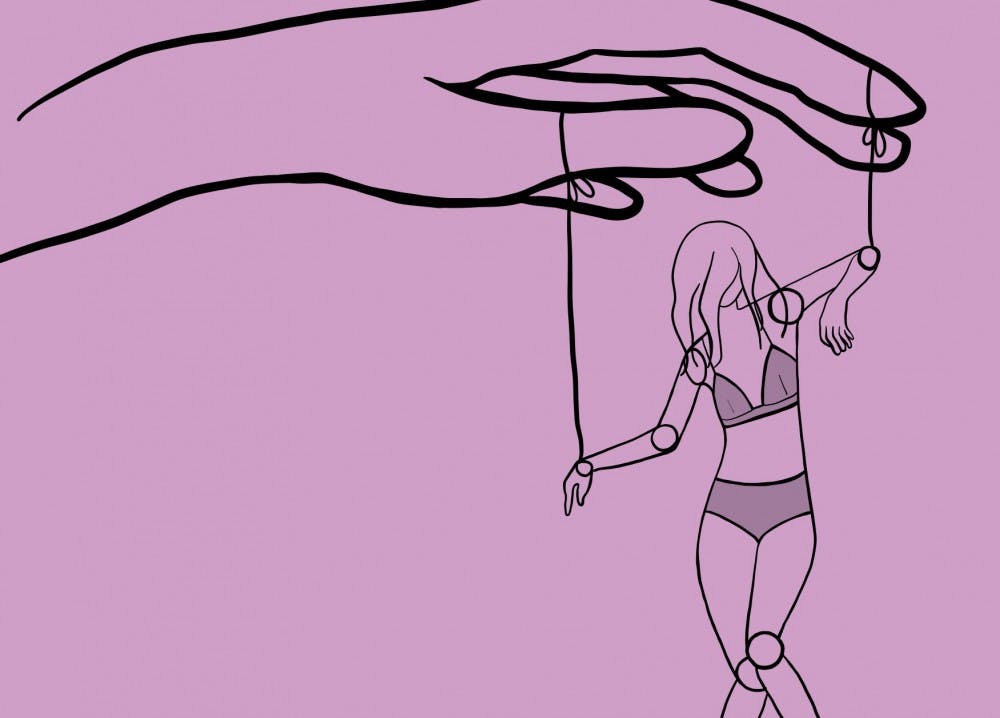Rape culture isn't a crime of passion — it is a detrimental cultural issue stemming from systematically socialized gender norms.
Sexual assault is a serious and complex issue on college campuses, and ASU is no exception. 1.2 percent of male students and 3.1 percent of female students at ASU have been reported to have experienced either attempted or completed sexual assault. Thankfully, there are resources available at ASU for anyone affected to take action. However, there is still very little understanding of the definition of rape, and what is behind it.
Despite the staggering statistics, sexual violence is normalized. People like to write it off as a crime of passion or a drunken mistake, which is not acceptable.
Rape is not about stupid decisions or frenzied desire. Rape is about power, control and dominance. Denying and normalizing this simply reinforces rape culture.
Rape culture is a culture in which rape is rampant, yet it is excused by the people and media within that culture. It is exemplified in the blatant objectification and sexualization of the female body, lack of regard for a victim’s human rights, the romanticism of rape in the media and dehumanization of victims of sexual assault.
This is perpetuated by lessening the pressure on the abuser and assigning blame to the victim. In this type of culture rape is not taken seriously.
It is estimated that 35 out of every 1,000 women attending college will be raped. Colleges pour their resources into instituting preventative programs. Yet in reality, these numbers are likely much larger, as more than 90 percent of college victims do not report the attack.
Despite attempts to educate and end sexual violence on campuses, rape is largely overlooked or laughed off. There are countless rape jokes thrown around, and rape is often used as a verb to describe excelling at something.
For example, a student who did well on a exam may say "I raped that test." This only serves to normalize rape, making rape culture thrive.
The normalization of rape largely stems from the lack of understanding on the subject. It is seen as a crime of passion, rather than violent violation of boundaries and rights. The abuser often believes they are entitled to use someone else’s body without consent.
"Many students are desensitized to rape culture. It's a normal part of conversations and social behaviors," Sergio Camberos, ASU wellness ambassador, said. "These behaviors have to be unlearned. Leaning how to facilitate healthy relationships, how to be respected, and be respectful are all part of this process."
Rape is also often a symptom of a desire to dominate and institute control. It is part of a power dynamic. It comes from a culture of socialized gender norms where men are seen as overtly sexual beings and women as pure and sexless.
These rapists and abusers often are not held responsible for their violence, while the victims are held responsible for protecting themselves. We are taught how to avoid rape, but we are not taught not to rape.
The criminal system can punish rapists and sexual abusers, but it is very difficult to unleash the value of entitlement to someone else’s body. We need to define rape as it really is: coercive assault and violence.
If our culture is able to accurately define rape and create values that foster accountability we will be able to deconstruct rape culture and construct a healthier culture that teaches empathy and respect.
Hotline numbers for victims of sexual assault, abuse or domestic violence: HOTLINE crime victims services
Reach the columnist at sljorda4@asu.edu or follow @skyjordan4 on Twitter.
Editor’s note: The opinions presented in this column are the author’s and do not imply any endorsement from The State Press or its editors.
Want to join the conversation? Send an email to opiniondesk.statepress@gmail.com. Keep letters under 500 words and be sure to include your university affiliation. Anonymity will not be granted.
Like The State Press on Facebook and follow @statepress on Twitter.




